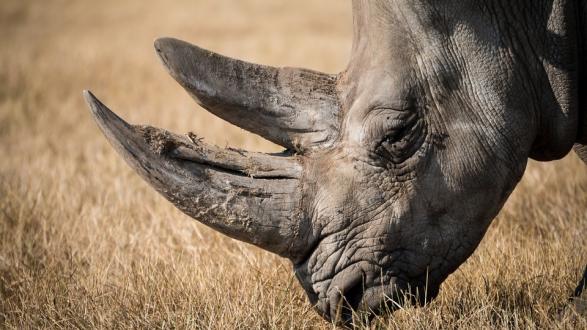In:
Global Beat is your weekly stop for news from around the world. Join us every Friday morning for important stories you should know about.
This week, Swaziland wants to sell its stock of rhino horns and harvest more; attacks in Kashmir raise tensions between India and Pakistan; China and Canada explore a free trade agreement; and more.
____________________
Americas
Peruvian President Pedro Pablo Kuczynski called on South American nations to both help and pressure the Venezuelan government during his address to the UN General Assembly this week. "The prescription is simple but hard to implement," Kuczynski said. "Help them out. There are no medicines in Venezuela. People are starving. We can do a club of countries – Chile, Argentina, Colombia, Peru. We have pharmaceutical industries. We have food. We can help out. Now, Maduro doesn’t want that, because he says everything is perfect in Venezuela. But that’s not true. Everybody knows that." Venezuela’s representative to the United Nations, Rafael Ramirez, called Kuczynski’s comments "a gratuitous attack."
Also check out:
- Chief FARC negotiator: Fighters must be given amnesty if peace in Colombia is to succeed – Natalie Gallón, CNN
Central & South Asia
Tensions between India and Pakistan are high after an attack on an army base in the Indian-administered region of Kashmir killed 18 people this week. At least 10 suspected militants were killed attempting to cross the border into India two days after the attack. The Indian Army said the weapons and gear carried by the terrorists had "Pakistani markings," leading to furious responses on social media from civilian and government officials alike. Islamabad has denied accusations that the government aided the attackers, calling the allegations "baseless" and distractions from human rights abuses in the Kashmir region.
Also check out:
- India’s energy diplomacy in Central Asia could challenge China’s monopoly – Manish Vaid, Huffington Post
China & East Asia
China and Canada announced this week that they are exploring a bilateral free trade agreement. Their goal is to double bilateral trade by 2020. The two countries are also exploring a possible extradition treaty for Chinese fugitives from Canada. Concerns remain in Canada, however, about China’s use of capital punishment, its human rights record, and "Operation Fox Hunt," China’s international pursuit and harassment of economic fugitives and other dissidents.
Also check out:
- South Korea, U.S. to simulate attack on nuclear facility – Jungeun Kim, Paula Hancocks and Joshua Berlinger, CNN
Europe & Russia
France began work Tuesday on an "anti-intrusion wall" in the coastal town of Calais, where between 7,000 and 10,000 migrants live in a camp known as "The Jungle." The wall is designed to stop migrants from illegally crossing the English Channel into the United Kingdom and will cost an estimated $3 million (€2.7 million). The United Kingdom is paying for the wall.
Also check out:
- Putin has finally reincarnated the KGB – Andrei Soldatov, Foreign Policy
Middle East & North Africa
A boat carrying 600 migrants off the coast of Egypt capsized on Wednesday, killing 42 people. The boat contained Egyptian, Syrian, and African migrants and was most likely destined for Italy. An increasing number of people are trying to enter Europe via Egypt, though the route is dangerous and can take more than 10 days. From January to July of this year, 2,505 people died at sea trying to reach Italy, compared to 2,892 in 2015.
Also check out:
- How video games are influencing war propaganda in Syria – Murtaza Hussain, The Intercept
Southeast Asia & Oceania
A UK labor rights activist named Andy Hall was found guilty of defamation and computer crimes in Thailand this week. Hall’s 2013 report for Finnish NGO Finnwatch claimed a Thai pineapple wholesaler that supplies the European Union perpetrated violence against employees, forced them to work overtime, and confiscated passports of Burmese migrants. He was given a three-year suspended jail term and fined $4,300 (฿150,000). Human Rights Watch said the ruling will have a "serious chilling effect on workers’ rights monitoring" in Thailand.
Also check out:
- While courting China, Vietnam prepares for a future South China Sea crisis – Gregory Poling, World Politics Review
Sub-Saharan Africa
In a proposal sent to the Convention on International Trade in Endangered Species, being held in Johannesburg this week, the government of Swaziland is requesting to sell their entire stock of rhino horns. The small African country located between South Africa and Mozambique has about 730 pounds of horn, which would amount to about $9.9 million. Swaziland also wants to harvest and sell about 25 pounds annually from four of their 73 white rhinos in addition to 45 pounds annually from natural deaths, which would amount to about $1.2 million a year.
Also check out:
- How a poor country – Rwanda – brought health insurance to 91 percent of the population – The Economist




